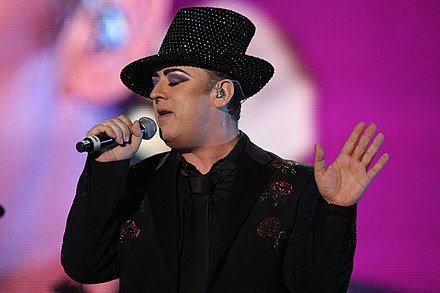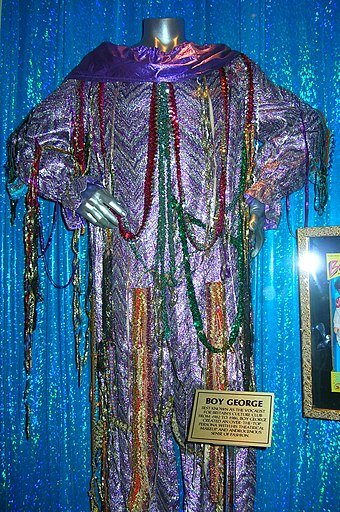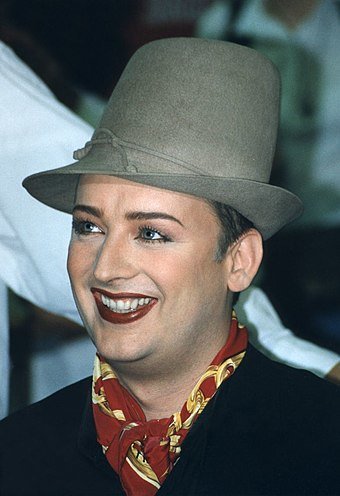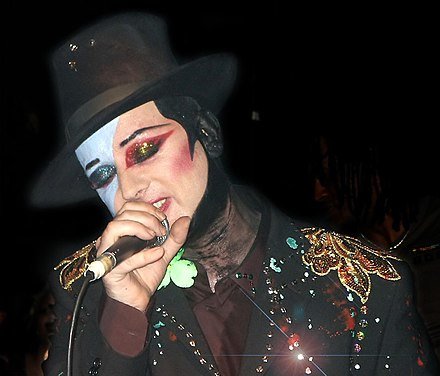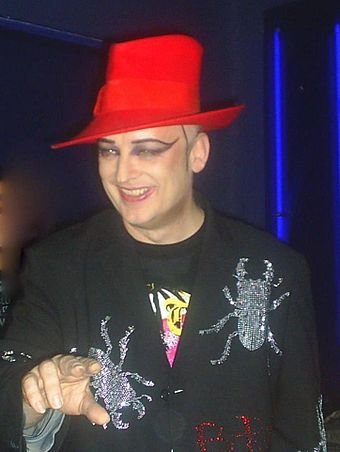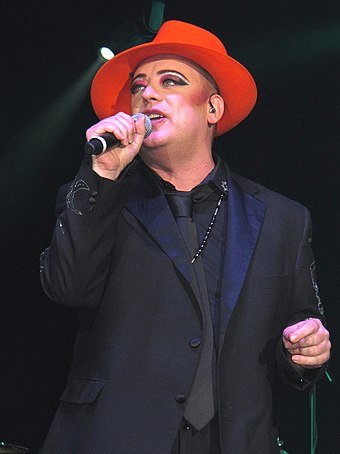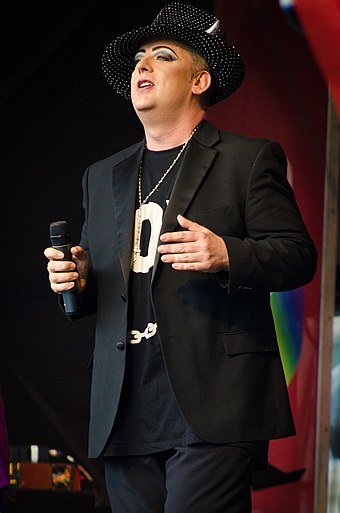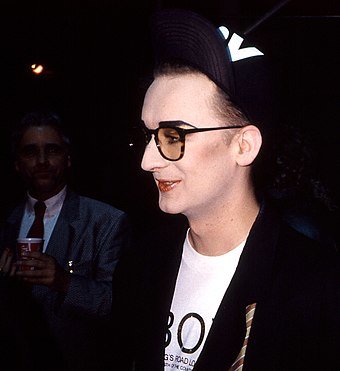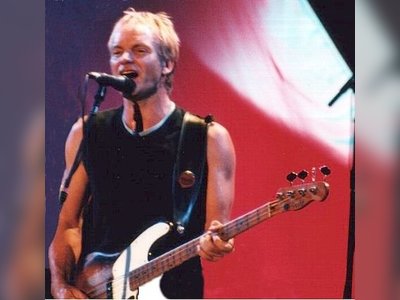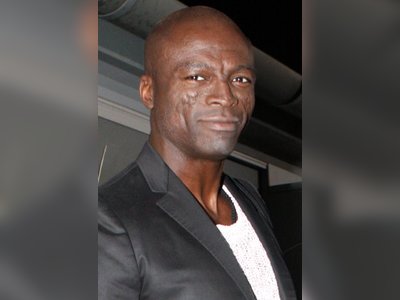British Heritage
Remember, Cherish, Learn.
beta
Boy George
A Legacy of British Heritage and Musical Prowess.
Contribution to British Heritage:
Boy George, whose real name is George Alan O'Dowd, has left an indelible mark on British heritage through his multifaceted talents as a singer, songwriter, disc jockey, fashion designer, photographer, and record producer. He is best known as the lead singer of the iconic pop band Culture Club, which rose to fame during the 1980s and recorded a string of global hit songs that continue to be beloved classics to this day. George's unique and androgynous style of dressing, along with his soulful voice and captivating stage presence, made him an influential figure in the music and fashion scenes.
As a prominent figure in the British New Romantic movement that emerged in the late 1970s and early 1980s, Boy George played a vital role in shaping the pop culture of the era. The movement celebrated artistic expression, and George's flamboyant and gender-blending fashion, inspired by glam rock pioneers like David Bowie and Marc Bolan, became synonymous with the New Romantic aesthetic. His music, often classified as blue-eyed soul, was influenced by rhythm and blues and reggae, blending diverse musical elements to create a unique sound that resonated with audiences worldwide.
Legacy and Contribution to British Music:
The legacy of Boy George and Culture Club lies not only in their chart-topping songs but also in the significant impact they had on British music and the global pop scene. Their breakthrough debut album, "Kissing to Be Clever," released in 1982, featured the international hit single "Do You Really Want to Hurt Me?" This single reached the top spot in multiple countries and helped propel Culture Club to international stardom.
Following their debut success, Culture Club's second album, "Colour By Numbers," achieved even greater heights. It topped the UK charts and reached No. 2 in the US. The album's lead single, "Karma Chameleon," became an international sensation, topping the charts in 16 countries and becoming the best-selling single of 1983 in the UK. The album also produced hits like "Church of the Poison Mind," "Victims," and "It's a Miracle."
Throughout their career, Culture Club continued to produce chart-topping albums and singles, solidifying their status as one of the most successful bands of the 1980s. George's soulful vocals, combined with the band's eclectic musical style, left an enduring impact on the pop music landscape, and their music remains a beloved part of British musical heritage.
Success and Recognition:
Boy George's immense success and talent have not gone unnoticed, earning him numerous accolades and awards throughout his career. In 2015, he received an Ivor Novello Award for "Outstanding Services to British Music" from the British Academy of Songwriters, Composers, and Authors. Additionally, in 2002, he was voted 46th in a BBC poll of the 100 Greatest Britons, a testament to his lasting influence on British popular culture.
Apart from his achievements with Culture Club, Boy George pursued a successful solo career, releasing albums that showcased his songwriting abilities and versatility as an artist. His solo works included collaborations with other notable musicians and explored various genres, further solidifying his status as a versatile and innovative artist.
General Information:
Born on 14 June 1961 in Kent, England, Boy George was raised in a working-class Irish Catholic family. His unique androgynous appearance and fashion sense caught the attention of music entrepreneur Malcolm McLaren, leading to his involvement with the group Bow Wow Wow before forming Culture Club. The band's success in the 1980s catapulted George to international fame, with hit songs like "Karma Chameleon" and "Do You Really Want to Hurt Me" becoming iconic representations of the era.
Despite his achievements in the music industry, Boy George faced personal struggles, including battles with drug addiction and legal issues. However, he overcame these challenges and returned to the music scene, both as a solo artist and as a DJ, further showcasing his artistic evolution and enduring passion for music.
In conclusion, Boy George's impact on British heritage, his remarkable contribution to British music, and his continued artistic pursuits have solidified his place as a legendary figure in the realm of pop culture. His iconic songs, unique fashion sense, and soulful voice continue to resonate with fans and inspire artists across generations, making him an enduring symbol of British musical prowess and cultural influence.
- Boy Georgeen.wikipedia.org
